Find the intercepts, and then graph the line.y = x + 3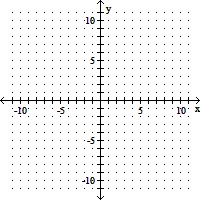
A. (0, 3), (3, 0)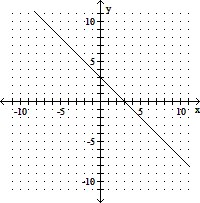
B. (-3, 0), (0, 3)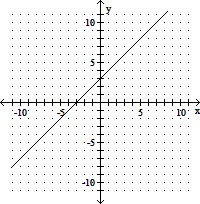
C. (0, -3), (3, 0)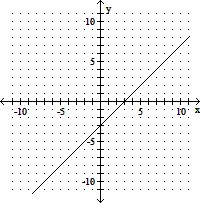
D. (0, -3), (-3, 0)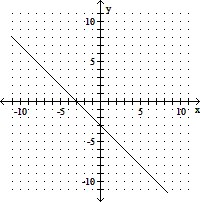
Answer: B
You might also like to view...
Use power series operations to find the Taylor series at x = 0 for the given function.x9ex
A. 
B. 
C. 
D. 
Suppose that the functions f and g and their derivatives with respect to x have the following values at the given values of x. Find the derivative with respect to x of the given combination at the given value of x. f2(x) ? g(x), x = 3
f2(x) ? g(x), x = 3
A. 131 B. 48 C. 259 D. 35
Use an identity to find the value of the expression. Do not use a calculator.sin 14° csc 14°
A. 1 B. 0 C. sin2 14° D. 14
Use the x-intercepts to find the intervals on which the graph of f is above and below the x-axis.f(x) = (x - 2)2(x + 4)2
A. above the x-axis: (-?, -4), (2, ?) below the x-axis: (-4, 2) B. above the x-axis: (-?, -4), (-4, 2), (2, ?) below the x-axis: no intervals C. above the x-axis: (-4, 2) below the x-axis: (-?, -4), (2, ?) D. above the x-axis: no intervals below the x-axis: (-?, -4), (-4, 2), (2, ?)